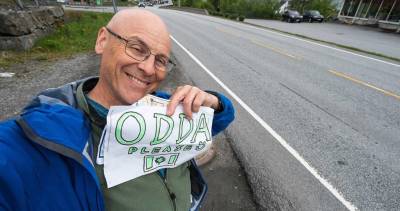Mary Ellen Turpel-Lafond delivers thundering denunciation of Plecas report on child welfare
B.C.'s representative for children and youth, Mary Ellen Turpel-Lafond, has released a devastating analysis of a B.C. government-commissioned report that's driving major changes to child-protection policies.
"A core concern has been the fact that, to my knowledge, Aboriginal groups, stakeholders, my Office and other communities of interest that could provide valuable information were not consulted or interviewed during the development of the report," Turpel-Lafond wrote in an 84-page report (including appendices).
The original report by retired civil servant Bob Plecas called for the Ministry of Children and Family Development to take on the "oversight function" performed by Turpel-Lafond, who's an officer of the legislature.
"I also have had considerable concerns about the fact that the Plecas report made recommendations respecting the Office of the Representative for Children and Youth without meaningfully consulting my Office," she wrote. "Further, the Plecas report was issued without the correction of several factual inaccuracies that Mr. Plecas had full notice of, as I had pointed them out when I was given an opportunity to review the report very shortly before its public release."
The government asked Plecas to conduct a review in the wake of a B.C. Supreme Court ruling in the "J.P. case". The decision, which is under appeal, found that a child in government care had been sexually abused by her natural father.
"The nature of this appointment raised a number of questions relative to the role of my Office under the Representative for Children and Youth Act (RCY Act), including my clear jurisdiction to conduct, if necessary, an investigation into the J.P. case itself," Turpel-Lafond noted. "It also raised concerns for the family involved regarding deeply personal confidential information being provided to a ministry contractor."
To get around that, Plecas was designated a "director" under the Child, Family and Community Services Act. And according to Turpel-Lafond's report, his terms of reference were adjusted several times.
"Despite the genesis of the Plecas review being the J.P. case, the Plecas report does not substantively address the J.P. case," she wrote.
Rather, it "proceeds to offer wide-ranging commentary, perspectives and recommendations on various aspects of the ministry, its staffing and organization, its funding, its operations and its expectations of staff".
Turpel-Lafond's response pointed out that "extensive and diverse public and stakeholder consultation" is a key foundation of effective systemic reform. She noted that this occurred in previous reviews by Judge Thomas Gove and former deputy minister Ted Hughes, as well as in reviews of child welfare in other provinces, the United Kingdom, and Australia.
"It is almost unheard of for any contemporary review not to include the involvement of a wide range of people," Turpel-Lafond wrote. "Extensive public input is considered the current national and international standard for reviews of this nature, even in circumstances in which there is a short reporting timeframe."
Turpel-Lafond's report goes on to cite many other concerns about Plecas's recommendations, as well as his comments about a "culture of blame" that exists in child-welfare in B.C.
"No evidence is offered in support of these conclusions, and they are not at all consistent with the actions I have seen the ministry take in my Office's work overseeing the delivery of designated services," she wrote. "These are, therefore, rather dubious conclusions and not something that anyone should seriously consider as a basis upon which to make changes to the child-serving system, at least without considerable further analysis and validation.
"Social workers play an extremely important role in our system and have jobs that can be very difficult," Turpel-Lafond continued. "It does them no service to suggest (apparently without any empirical analysis) that they are likely to be targets of 'blame'."
Plecas's recommendations have been warmly received by the government.
However First Nations leaders issued a scathing condemnation, saying it's the polar opposite of the Truth and Reconciliation Commission report.
"In the way it was produced and in its content, it harkens to another era when our children were forcibly removed from their homes and put into the residential school system and where our land was taken and our culture was outlawed, with our well-being a distant thought," indigenous leaders wrote in an open letter to Premier Christy Clark and Children and Family Development Minister Stephanie Cadieux.
For her part, Turpel-Lafond declared in her report that there's a "legitimate concern" how Plecas's independent review "somehow morphed into a director's case review which, in turn, has become a 'roadmap' to revise the entire child-serving system before that initial case review has even been completed".
"That concern is exacerbated by the fact that this review lacked the openness and comprehensiveness of prior reviews or commissions of inquiry dealing with child protection issues (i.e. the Gove Inquiry and the Hughes Review), and did not engage critical voices and actors," she wrote.















Comments